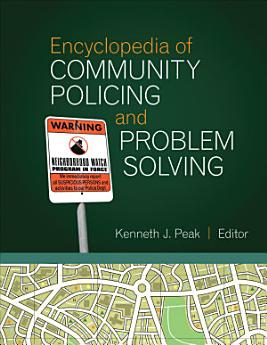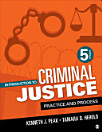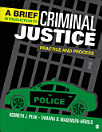Encyclopedia of Community Policing and Problem Solving
About this ebook
Features:
- A collection of 150 to 175 entries are organized in A-to-Z fashion in one volume available in both electronic and print formats.
- Signed entries, authored by significant figures in the field, each conclude with Cross-References and Suggestions for Further Readings to guide students to in-depth resources.
- Brief "What Works" case studies within appropriate entries profile community policing programs and strategies as tried in various cities and communities.
- Although organized in A-to-Z fashion, a thematic "Reader′s Guide" in the front matter groups related entries by broad topic areas (e.g., Foundations; Methods & Practices; Legislation & National Organizations; Changing Agency Culture; Planning & Implementation; Training & Curriculum; Assessment & Evaluation; etc.).
- Also included in the front matter, a Chronology provides students with historical perspective of the development of community policing.
- The entire work concludes with a Resources appendix listing classic books, journals, and associations, followed by a comprehensive Index.
About the author
Kenneth J. Peak, Ph.D., is a professor emeritus and former chairman of the criminal justice department at the University of Nevada, Reno, where he was named “Teacher of the Year” by the UNR Honor Society and also served as acting director of public safety. He has authored or coauthored more than 40 books on community policing, introductory policing, justice administration, introduction to criminal justice, women in law enforcement, and police supervision and management; two historical books (on bootlegging and temperance); and more than 60 journal articles and additional book chapters on a wide range of justice-related subjects. He has served as chairman of the Police Section, Academy of Criminal Justice Sciences and a past president of the Western Association of Criminal Justice. Prior to coming to UNR, Dr. Peak held positions as a municipal police officer, nine-county criminal justice planner; and director of a four-state Technical Assistance Institute. He also served twice as a chief of university police and as an assistant professor at Wichita State University (five years). He received two gubernatorial appointments to statewide criminal justice committees while in Kansas and holds a doctorate from the University of Kansas.





